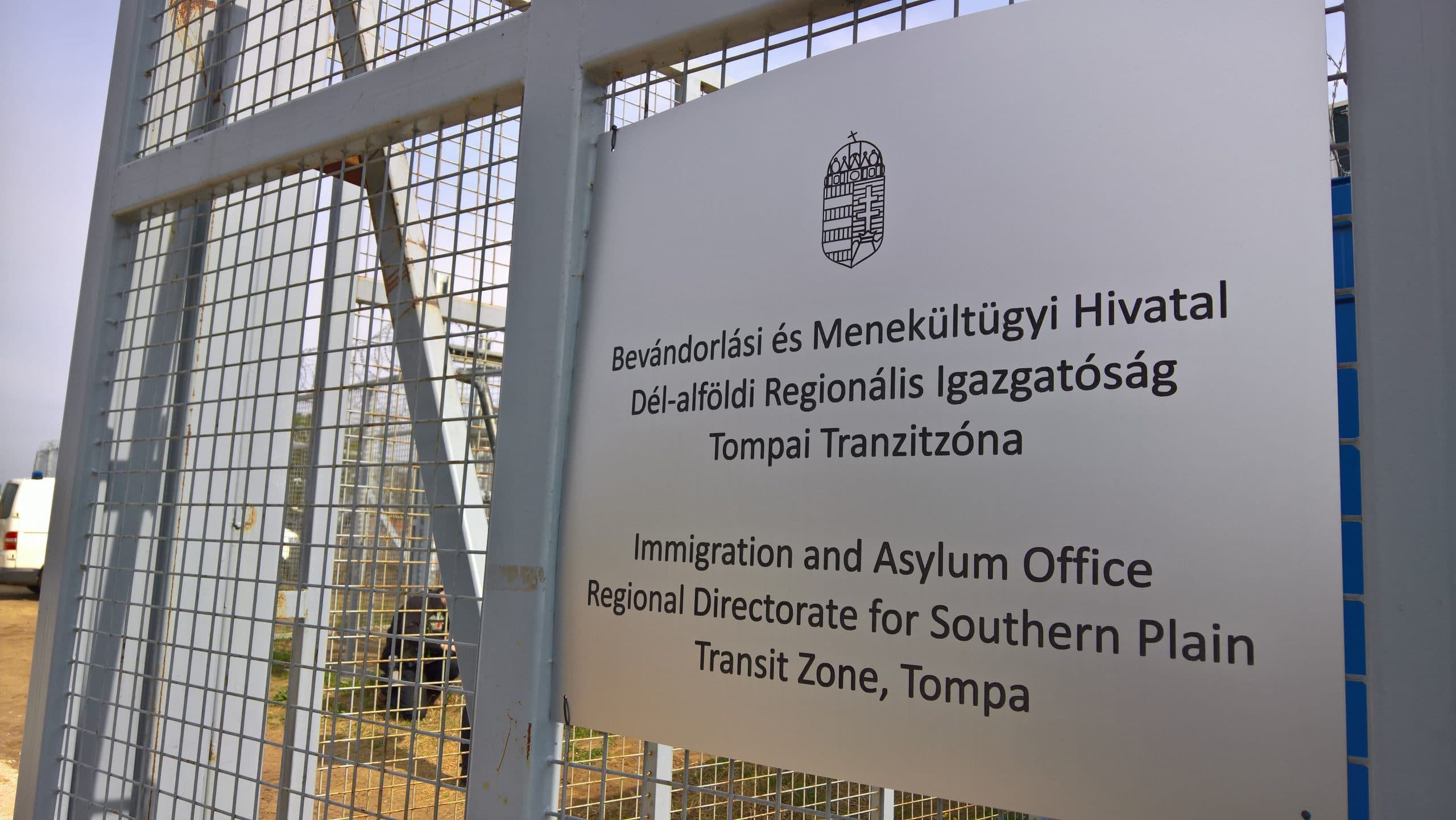Ilias and Ahmed won at the Grand Chamber of the European Court of Human Rights against Hungary
Ilias and Ahmed, clients of the Hungarian Helsinki Committee, have been granted EUR 5,000 each as a compensation of their non-pecuniary damages by the European Court of Human Rights. Their human rights have been violated when the Hungarian authorities failed in their duty to examine the risks the applicants would be facing as a result of their expulsion to Serbia. At the same time, the Grand Chamber did not regard their stay in the transit zone as detention. The Hungarian Helsinki Committee considers this part of the Strasbourg judgment to be flawed, and will continue defending asylum-seeking children and their parents against arbitrary detention.

The Calvary of Ilias and Ahmed from Bangladesh started in 2015, on the very same day when Hungary’s transit zones started operating. They were detained there for 23 days and then forced to return to Serbia without the examination of their reasons for seeking asylum. With the help of the Hungarian Helsinki Committee, they turned to the European Court of Human Rights, and a judgment was delivered in their case on 14 March 2017. The court then ruled that – in clear contrast to the Government’s fiction stating that the complainants had not been detained -, they were, indeed, detained unlawfully. No detention order was ever delivered in their case, and the duration of their detention was also not communicated to them and no legal remedy was available for them to challenge the deprivation of their liberty.
The Hungarian government requested the Grand Chamber to re-examine the case. Today the Strasbourg Court partly changed and partly upheld its previous judgment.
The Grand Chamber agreed with the Chamber ruling that the Hungarian authorities had violated the applicants’ fundamental rights by failing to properly examine the asylum seeker applicants would be facing in case of their expulsion to Serbia.
It is known that several member states of the Council of Europe have made attempts to establish and maintain transit zones similar to the Hungarian system, but the Strasbourg Court has ruled out these attempts for two decades. Today, however, a different judgment was delivered.
The Court did find that incarceration in the transit zone is not deprivation of liberty within the meaning of the European Convention of Human Rights in case of the two applicants who were not free in reality in their choices without the possibility of legal return to and access to asylum procedure in Serbia. Thus, they could only regain their freedom by renouncing another fundamental human right, their right to have their asylum request examined. They could not leave the transit zone towards Hungary due to barbed wire fences and armed police. Towards Serbia, it was the same case. Since 2015, the Serbian government has been rejecting the readmission of asylum seekers. They did not receive a decision on their detention, were not informed on its duration and could not bring their case before court.
The Grand Chamber’s judgment is not without contradiction. Today’s judgment states two arguments at the same time: on the one hand, when assessing the detention argument, the Court found that for the lack of risk in Serbia the applicants were not detained by Hungary, but on the other hand, the lack of rigorous assessment of the real risks the applicants were facing as a result of their expulsion to Serbia resulted in Hungary violating the Convention for which Hungary needs to compensate the applicants.
The Hungarian Helsinki Committee considers today’s judgment to be in stark contrast of the Court’s own well-established case law. The UN High Commissioner for Refugees, the European Committee for the Prevention of Torture and Inhuman or Degrading Treatment or Punishment (CPT), the Council of Europe and the United Nations Human Rights Commissioners, the European Commission and the European Parliament all consider the transit zones as places of detention.
Unfortunately, the Grand Chamber fails to reflect on the fact that the Government operates a whole system of serious rights violations to deter, expel and torment refugees.
The case of Ilias and Ahmed was closed with today’s ruling by the Grand Chamber. Nevertheless, the currently prevailing systemic problem of arbitrary mass detention of asylum seeking families with children for the entire asylum procedure has not been solved, it needs to be further addressed by litigation. The Hungarian Helsinki Committee remains committed to using all legal means to combat transit zone detention. Currently, about 180 children are detained in the transit zones, and over the past two past years more than 1,700 detainees were under minors.
The case adjudicated by the Grand Chamber today concerns the specific facts and legal situation of Ilias and Ahmed in 2015. Since then, as a result of the new laws the situation has significantly deteriorated, with the vast majority of children and their parents being detained in the transit zones for the duration of the entire asylum procedure, often exceeding one year. We remain convinced that it is incompatible with the fundamental, international, EU and constitutional rights to arbitrarily imprison innocent children, and starve their parents.
Last week, the Hungarian Helsinki Committee submitted its 100th complaint in cases of refugees to the European Court of Human Rights. In 75 cases the judges have not yet decided, and they will certainly have the opportunity to compensate for today.